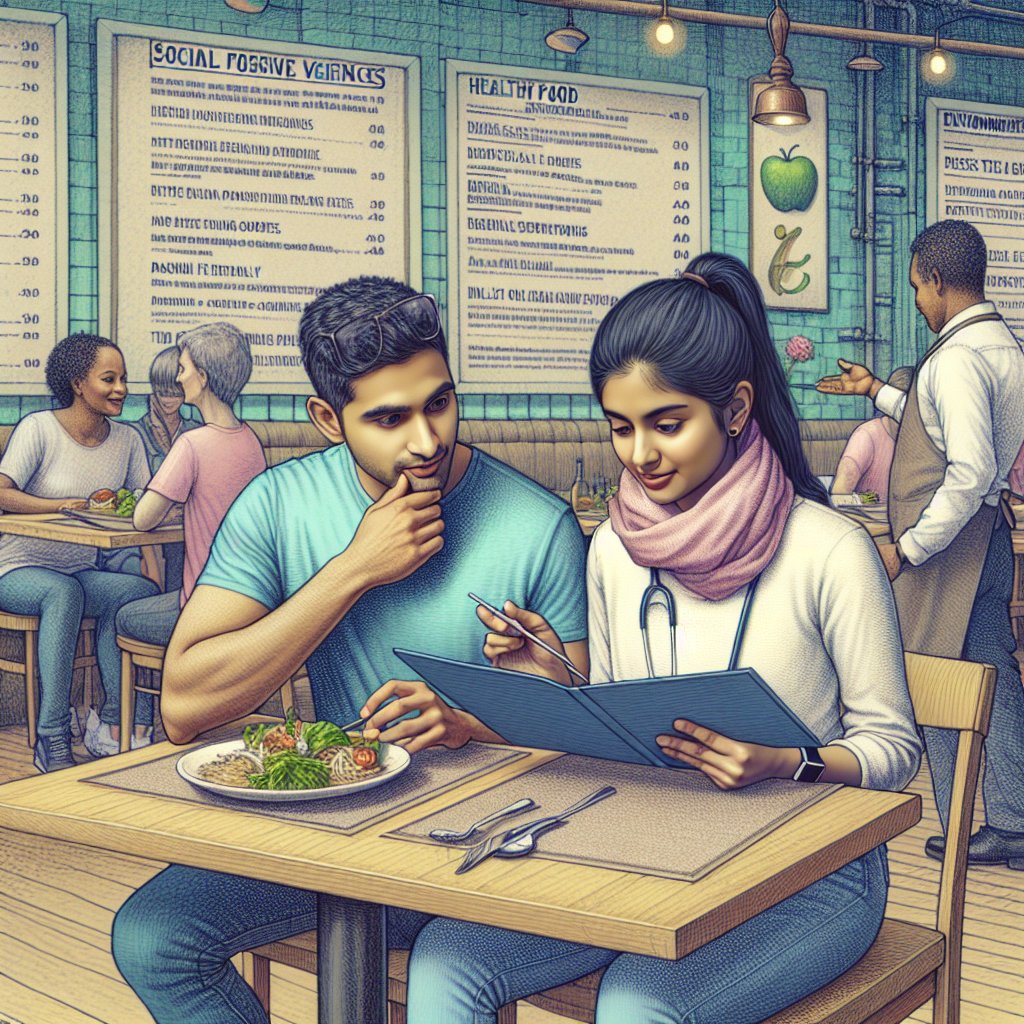-
Table of Contents

“Thriving Socially: Your Guide to Mindful Eating and Recovery”
Introduction
Navigating eating out and social events during recovery can be a challenging yet essential aspect of maintaining progress and fostering a balanced lifestyle. Whether recovering from an eating disorder, substance abuse, or another health condition, social gatherings and dining out often present unique obstacles that can trigger anxiety, temptation, or relapse. However, with careful planning, self-awareness, and supportive strategies, it is possible to enjoy these experiences without compromising recovery goals. This guide provides practical tips and insights to help individuals confidently manage social dining scenarios, ensuring they can participate in social activities while prioritizing their health and well-being.
Tips For Navigating Restaurant Menus During Recovery
Navigating restaurant menus during recovery can be a daunting task, but with the right strategies, it is entirely possible to enjoy social events and dining out while staying true to your recovery goals. The first step is to plan ahead. Before heading to a restaurant, take a few moments to review the menu online. Many establishments now provide detailed descriptions of their dishes, including nutritional information. This allows you to make informed choices and avoid any surprises when you arrive. If the menu is not available online, don’t hesitate to call the restaurant and ask about their offerings. Most places are more than willing to accommodate dietary needs and preferences.
Once at the restaurant, it is crucial to communicate your needs clearly. Don’t be afraid to ask the server questions about how dishes are prepared or to request modifications. For instance, you can ask for grilled instead of fried options, request sauces and dressings on the side, or substitute vegetables for starchy sides. These small adjustments can make a significant difference in aligning your meal with your recovery plan. Additionally, many restaurants are becoming increasingly aware of various dietary restrictions and are often prepared to offer healthier alternatives.
Another useful tip is to practice mindful eating. This involves paying close attention to what you are eating and savoring each bite. By eating slowly and mindfully, you give your body time to signal when it is full, which can help prevent overeating. Moreover, mindful eating can enhance your overall dining experience, making it more enjoyable and satisfying. It is also helpful to start your meal with a glass of water or a light appetizer, such as a salad or broth-based soup. This can help curb your appetite and prevent you from feeling overly hungry, which can lead to impulsive food choices.
When it comes to social events, it is important to have a plan in place. If you are attending a gathering where food will be served, consider bringing a dish that aligns with your recovery goals. This not only ensures that there will be something you can eat but also allows you to share healthy options with others. If bringing a dish is not feasible, try to eat a small, balanced meal before the event. This can help you feel more in control and less tempted by potentially triggering foods.
It is also beneficial to focus on the social aspect of the event rather than the food. Engage in conversations, participate in activities, and enjoy the company of those around you. Shifting your focus away from the food can help reduce anxiety and make the experience more enjoyable. Remember, recovery is not about deprivation but about making choices that support your well-being.
Lastly, be kind to yourself. Recovery is a journey, and it is normal to encounter challenges along the way. If you find yourself struggling or making choices that do not align with your recovery goals, do not be too hard on yourself. Instead, use it as an opportunity to learn and grow. Reflect on what triggered the decision and how you can handle similar situations in the future. Celebrate your progress and the steps you are taking towards a healthier, more balanced life.
In conclusion, navigating restaurant menus and social events during recovery requires planning, communication, and mindfulness. By taking proactive steps and focusing on the positive aspects of your journey, you can enjoy dining out and social gatherings while staying true to your recovery goals.
Strategies For Managing Social Events While In Recovery
Navigating eating out and social events during recovery can be a daunting task, but with the right strategies, it is entirely possible to enjoy these experiences while staying true to your recovery journey. The first step is to plan ahead. Before attending a social event or dining out, take some time to research the venue. Many restaurants have their menus available online, allowing you to identify dishes that align with your dietary needs and recovery goals. If the menu is not available, don’t hesitate to call the restaurant and ask about their options. This proactive approach can alleviate anxiety and help you make informed choices.
Another effective strategy is to communicate openly with your friends and family. Let them know about your recovery journey and the importance of making mindful choices. Most people will be supportive and understanding, and this transparency can reduce the pressure to conform to social norms that may not align with your recovery. Additionally, consider suggesting venues that you know offer suitable options, or even hosting gatherings at your home where you have more control over the food and environment.
When attending social events, it is crucial to have a plan in place for managing potential triggers. This might include bringing your own snacks or a dish to share, ensuring that you have something safe to eat. It can also be helpful to practice mindful eating techniques, such as paying attention to hunger and fullness cues, eating slowly, and savoring each bite. These practices can help you stay grounded and focused on your recovery goals, even in a social setting.
Moreover, it is important to set boundaries and prioritize self-care. If you find yourself in a situation where you feel uncomfortable or triggered, give yourself permission to leave or take a break. Stepping outside for some fresh air or finding a quiet space to regroup can make a significant difference. Remember, your well-being is the top priority, and it is okay to put your needs first.
In addition to these practical strategies, cultivating a positive mindset can greatly enhance your ability to navigate social events during recovery. Focus on the progress you have made and the strength you have demonstrated in your journey. Celebrate small victories and remind yourself that recovery is a process, not a destination. Surround yourself with supportive individuals who uplift and encourage you, and seek out social activities that align with your values and interests.
Furthermore, consider seeking support from a therapist or support group. These resources can provide valuable insights and coping strategies tailored to your unique situation. Engaging with others who are on a similar path can also offer a sense of community and understanding, which can be incredibly empowering.
Ultimately, navigating eating out and social events during recovery requires a combination of planning, communication, self-awareness, and support. By implementing these strategies, you can enjoy social experiences without compromising your recovery. Embrace the journey with confidence and compassion, knowing that each step you take brings you closer to a healthier, more fulfilling life.
Q&A
1. **Question:** How can I plan ahead for eating out during recovery?
**Answer:** Research the restaurant’s menu online beforehand to identify healthy options that align with your recovery goals, and consider calling ahead to ask about specific dietary needs or modifications.
2. **Question:** What strategies can I use to manage social pressure to drink alcohol at events?
**Answer:** Bring your own non-alcoholic beverage, practice saying a polite but firm “no, thank you,” and have a supportive friend or family member with you for added encouragement.
Conclusion
Navigating eating out and social events during recovery involves careful planning and self-awareness. Start by researching menus in advance to identify safe food options and communicate your dietary needs to restaurant staff or event hosts. Practice mindful eating by focusing on portion control and savoring each bite. Bring your own snacks if necessary, and don’t hesitate to excuse yourself from triggering situations. Seek support from friends or support groups to stay accountable and motivated. Ultimately, prioritize your recovery by making choices that align with your health goals and being prepared to handle social pressures with confidence.



